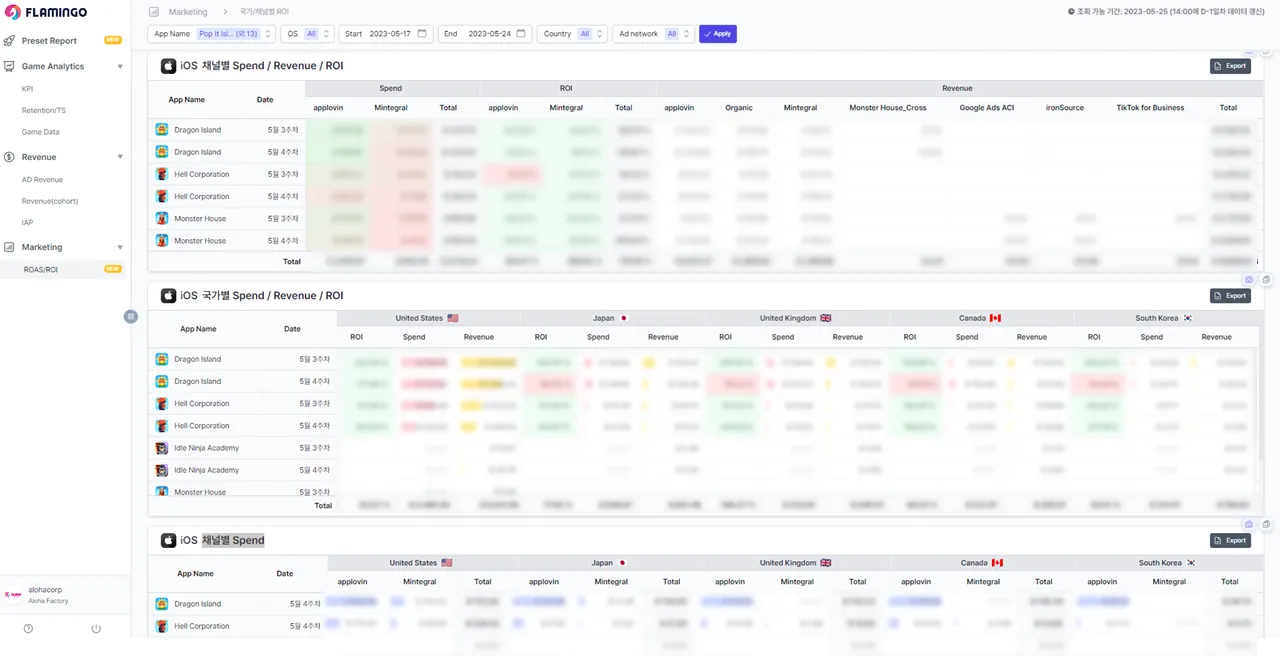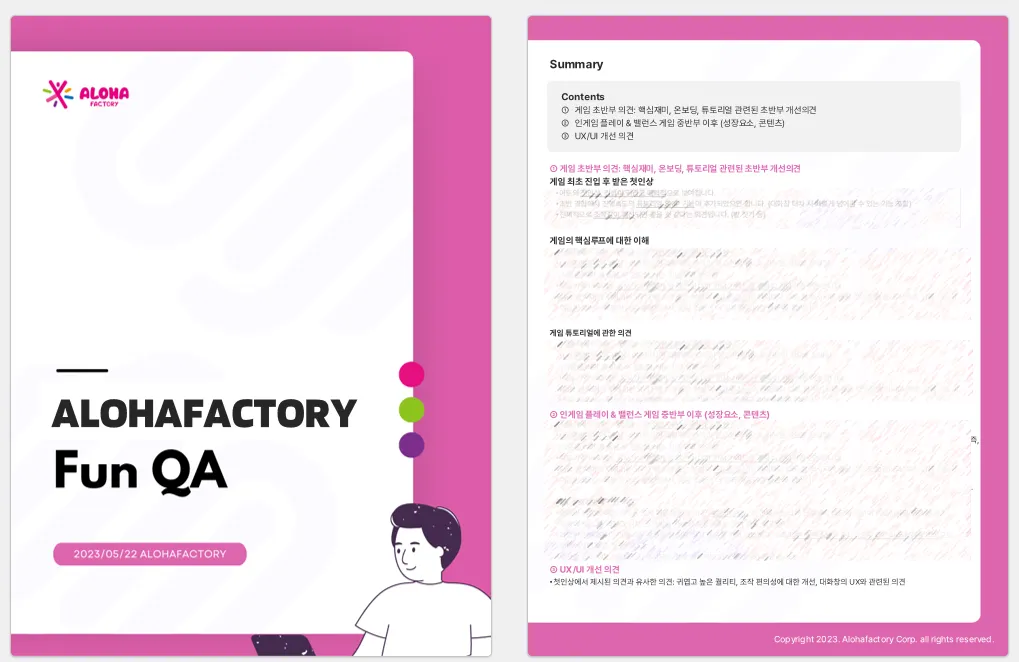If you’re a game developer, you’ve likely heard about game publishing and the role of publishers. Game publishing is generally divided into two types: self-publishing, where the developer manages everything from development to distribution, marketing, business, and operations, and publishing through a third-party publisher.
At Aloha, we have our own in-house studio focused on game development, and we launch games through self-publishing in collaboration with our publishing business team. At the same time, we also serve as a publisher for games from other developers.
As the competition in the game market has become more intense, driven by lower barriers to entry and the ability to utilize various assets, simply releasing a game with natural user acquisition is no longer a guaranteed path to success, even if the game is fun and of high quality. As a result, the role of publishers, who possess professional expertise in game operations, has become crucial to success.
A game publisher collaborates with the developer to handle the overall business processes needed to successfully operate the game service. This includes running marketing campaigns, supporting game operations, and developing strategies for game monetization.
Selecting a Publisher to Enhance Your Game’s Business Quality
Depending on the size and resources of the development studio, different needs may arise, but having a professional publisher can significantly improve the business quality of a game and achieve higher performance levels. This is because publishers bring operational, business, and marketing expertise, which allows the developer to focus on improving the game’s quality, resulting in more stable services and higher long-term profits.
Can they handle creative development, utilize a variety of global marketing channels, and analyze performance to optimize ROAS?
For small studios with limited business teams, having specialized expertise in user acquisition (UA) and monetization is especially important. Simply paying for marketing in specific channels is not enough to achieve optimized results, and lower profitability due to inefficient spending can reduce a game’s lifespan. Therefore, when selecting a publisher with marketing expertise, it’s important to check whether they can support creative development, have experience utilizing different global channels, and possess UA optimization capabilities.
At Aloha, we analyze game performance on a weekly basis by country and channel, checking ROAS and continuously communicating with media partners to achieve optimal results. By implementing optimized strategies for creative development and spending across different channels, we enhance profitability relative to the marketing costs.
In terms of creative, we’ve established a dedicated team that conducts weekly trend research to determine the most effective style of assets and key points to emphasize. Through continuous analysis of results based on internal criteria, we replace assets to maximize conversion rates. The degree to which a publisher analyzes and improves performance can make a significant difference in a game’s profitability, even for the same game.
Tips for Global Game Publishing
The importance of performance marketing based on ROI is undeniable in global game publishing. However, for games with a narrow target audience and high expected revenue per user, viral marketing to acquire organic users becomes crucial. Acquiring a high-value user can be very expensive, and these users are unlikely to install a game solely through video or image ads. As such, brand marketing, including leveraging trend-specific assets and influencers in each country, should also be considered.
Flamingo Report
Game Development Insights: Publisher’s Role in Creative Direction
When releasing a game through a publisher, one common concern is the risk of the game’s direction being frequently changed by the publisher. It is important to evaluate whether the publisher can collaboratively set an optimized direction for the game, based on objective and rational data, as a true partner rather than making unilateral decisions.
For developers who are deeply involved in the creative direction of their game, it’s ideal to work with a publisher who can identify areas for improvement using optimized metrics and provide insights to help create a long-lasting game. Aloha’s strength lies in its data-driven processes. We analyze data using our in-house tool, FLAMINGO, and conduct qualitative game assessments (FUN QA) through our internal development experts to elevate game quality.
One recent example involves a partner with whom we conducted initial user onboarding tests. We discovered that the onboarding flow had issues, as the first-day TS (time spent) was lower than that of reference games, and retention rates dropped sharply as gameplay progressed. Through FUN QA and churn analysis, we identified the root causes and suggested improvements to the core loop (growth-hurdle-content unlock-clear), which helped increase retention by 29% on Day 1 in the next test.
Tips for Choosing a Publisher
When selecting a publisher, it’s essential to think about who can best support your studio’s current needs in game development, marketing, monetization, and operations. Larger studios may only need to compare publishers based on their business and service capabilities, as they can manage creative direction internally. However, smaller or less experienced studios often require a publisher who can assist in shaping the game’s direction, development process, resource allocation, and timeline. External guidance from experienced professionals can be invaluable, especially when aligning internal ideas.
A Transparent and Trustworthy Partner
The most important aspect of a publisher is that they act as a “partner,” working with trust toward the same goal. At Aloha, we leverage our experience in global markets to provide swift and precise communication, transparent data sharing, and continuous feedback to ensure the success of game services in the global market.
Aloha Factory is waiting for the right “partner” to run alongside.
Want to know more about how to easily access and improve your data? Become a partner of Aloha Factory!




